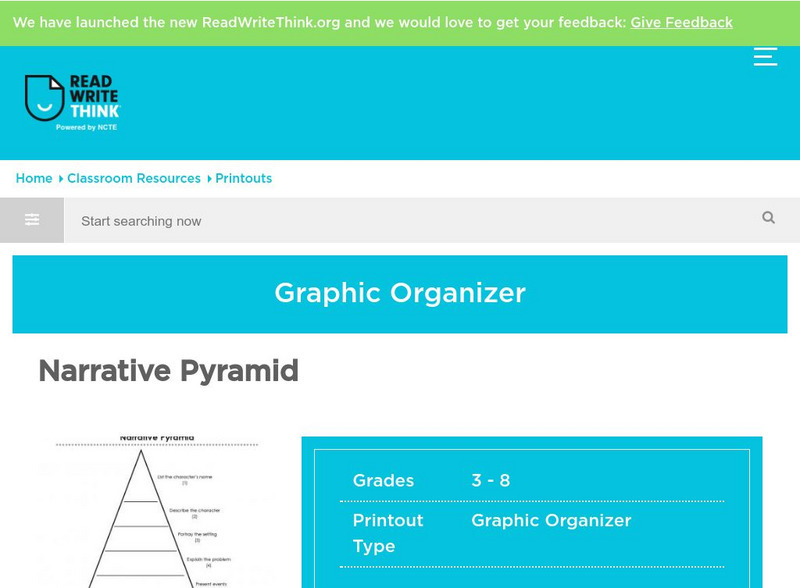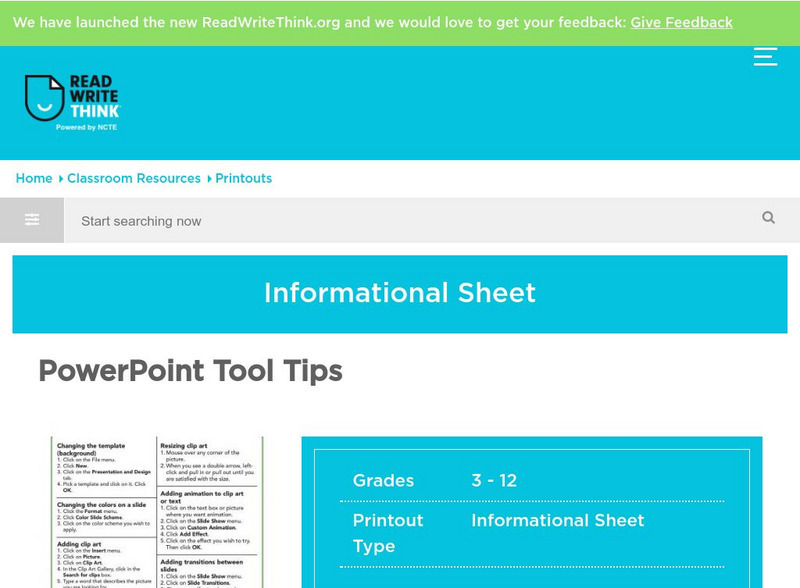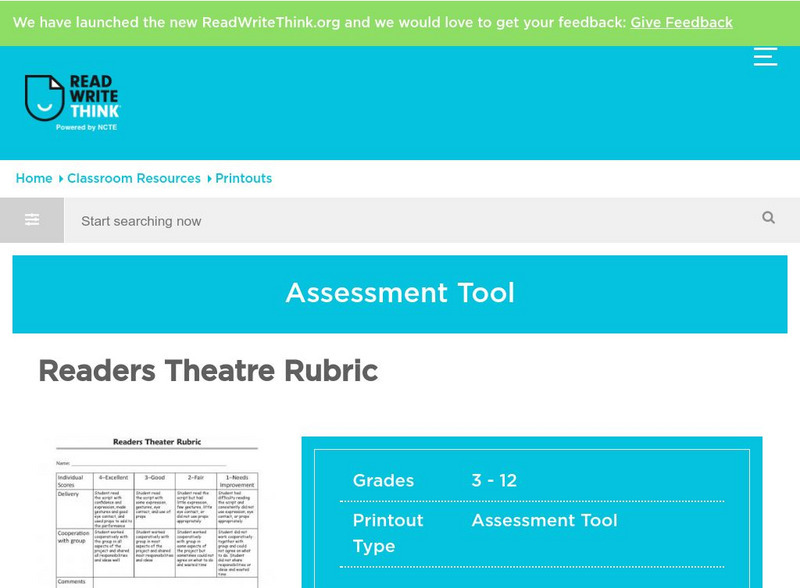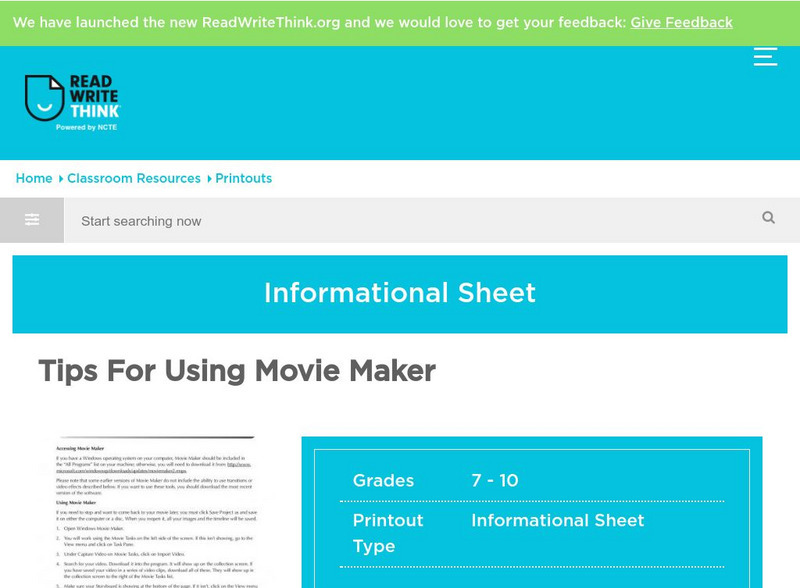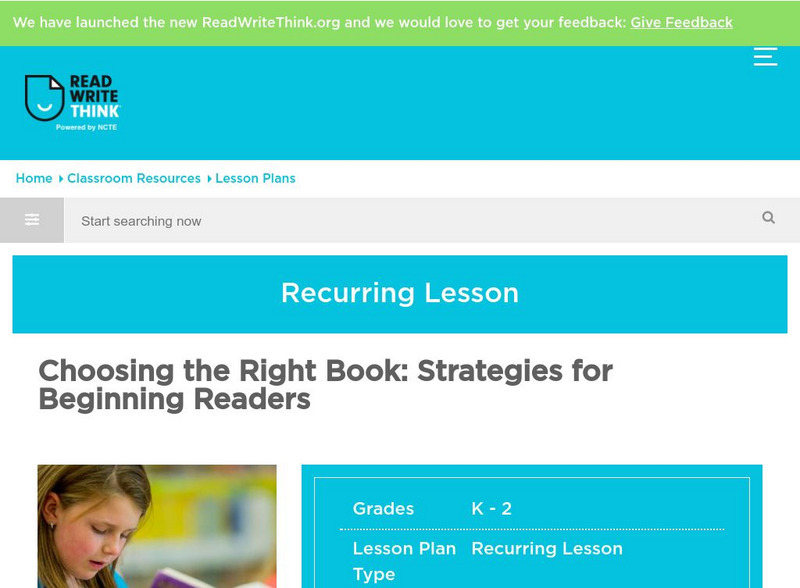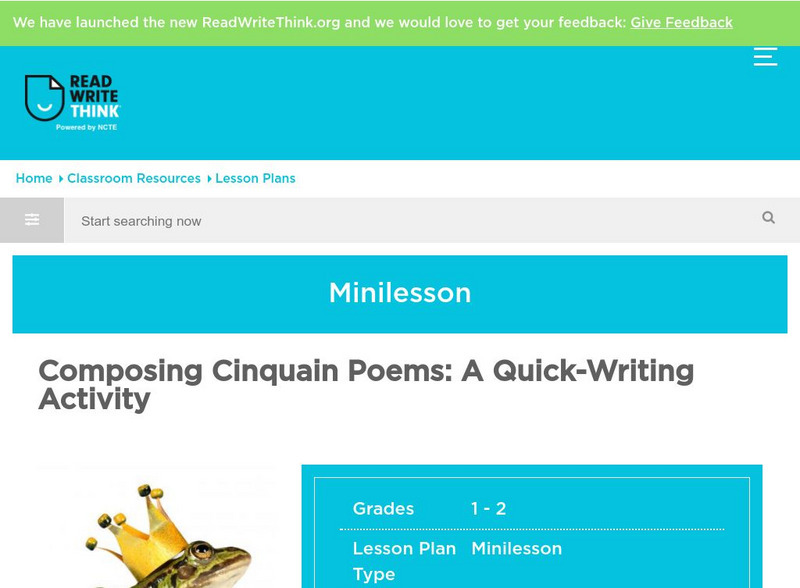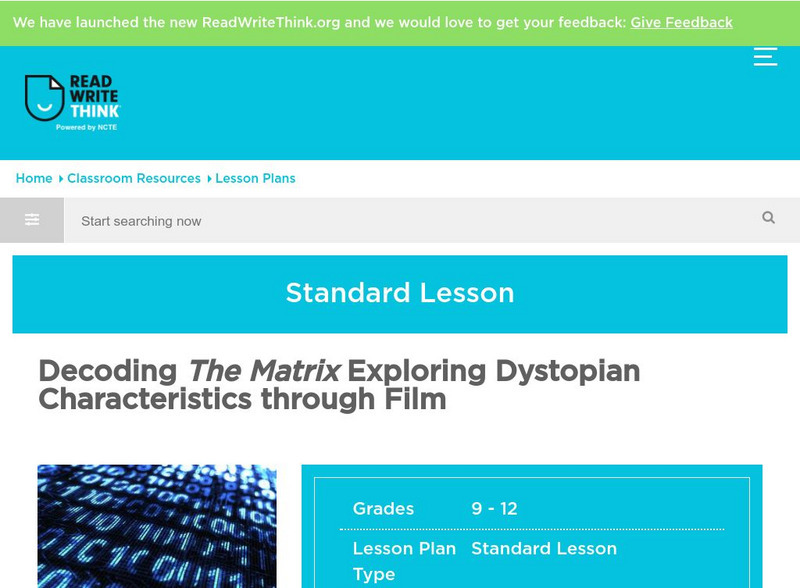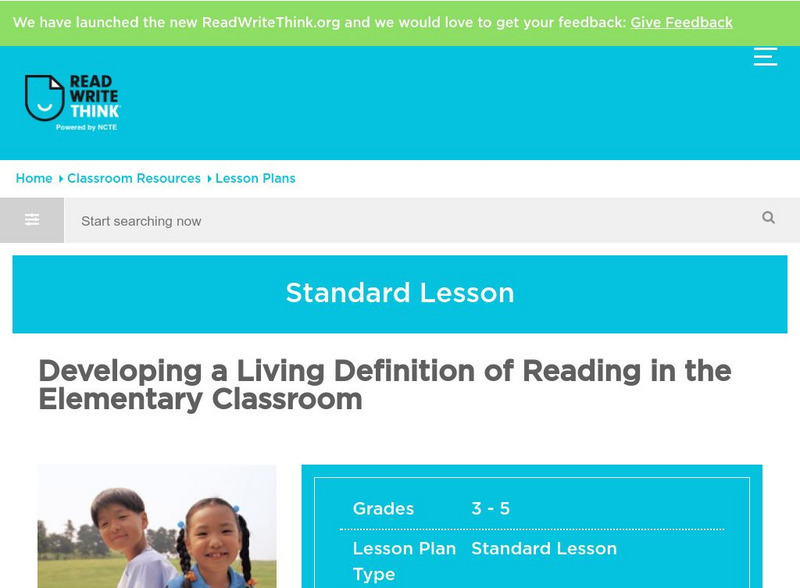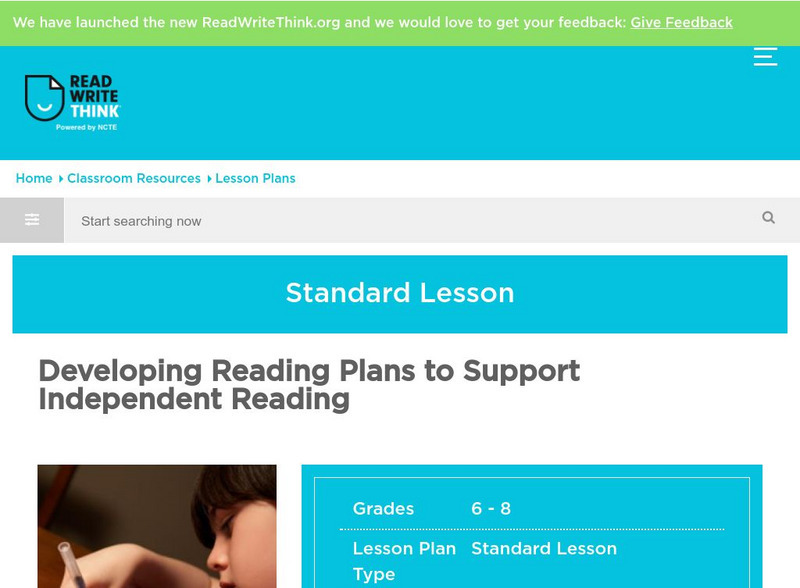ReadWriteThink
Read Write Think: Making Connections
A printable graphic organizer for students to use when making text to self, text, and world connections while reading a text. Directions on how to use this type of graphic organize as well as lists of teaching ideas and related resources...
ReadWriteThink
Read Write Think: Narrative Pyramid
A printable narrative pyramid where students can record information about a story including the character, setting, problem, main events, and solution. Directions on how to use this type of graphic organize as well as lists of teaching...
ReadWriteThink
Read Write Think: Nonfiction Pyramid
A printable pyramid for use with nonfiction texts while students identify the main ideas and supporting details within a text. Students also determine author's purpose and key vocabulary words. Directions on how to use this type of...
ReadWriteThink
Read Write Think: Persuasion Rubric
A printable four-point rubric to use when assessing a persuasive piece with a focus on organization, a goal or thesis, reasons/support, audience, word choice, visuals/delivery, and grammar/usage/mechanics. Directions on how to use this...
ReadWriteThink
Read Write Think: Power Notes
A printable note-taking format where students create an outline by assigning powers to the main idea and supporting details. Directions on how to use this type of rubric as well as lists of teaching ideas and related resources are also...
ReadWriteThink
Read Write Think: Power Point Tool Tips
Printable directions on how to work within PowerPoint to do things like change the template, change slide colors, add and manipulate clip art, add animations, set transitions between slides, and change text on action buttons. Directions...
ReadWriteThink
Read Write Think: Raft Writing Template
A printable graphic organizer for students to use while determining their role, audience, format, and topic for a RAFT writing assignment. Directions on how to use this type of graphic organizer as well as lists of teaching ideas and...
ReadWriteThink
Read Write Think: Readers Theater Rubric
A printable four-point rubric to evaluate students for delivery and group cooperation during Readers Theater. Directions on how to use this rubric as well as lists of teaching ideas and related resources are also provided.
ReadWriteThink
Read Write Think: Seed Discussion Organizer
A printable graphic organizer students can use to organize their thoughts when a new concept is introduced. Seed Discussion categories include things the learner does not understand, things that are surprising or interesting, new...
ReadWriteThink
Read Write Think: T Chart
A printable T-chart for students to use when comparing two topics or two sides of one topic. Directions on how to use this graphic organizer as well as lists of teaching ideas and related resources are also provided.
ReadWriteThink
Read Write Think: Tips for Using Movie Maker
A printable handout providing information on accessing and using Windows Movie Maker software. Lists of teaching ideas and related resources are also provided.
ReadWriteThink
Read Write Think: Venn Diagram, 3 Circles
A printable Venn Diagram with three circles to use when comparing and contrasting three things or topics. Directions on how to use this graphic organizer as well as lists of teaching ideas and related resources are also provided.
ReadWriteThink
Read Write Think: Venn Diagram Rubric
A printable three-leveled rubric for evaluating a Venn diagram in the areas of test support of comparisons, placement of statements, and number of quality statements. Directions on how to use this rubric as well as lists of teaching...
ReadWriteThink
Read Write Think: Book Report Alternative: Examine Story Elements Using Comic Stri
Comic frames are traditionally used to illustrate a story in a short, concise format. In this activity, young scholars use a six-paneled comic strip frame to create a story map, summarizing a book or story that they have read. Each panel...
ReadWriteThink
Read Write Think: Choosing the Right Book: Strategies for Beginning Readers
Learners make purposeful choices for their reading materials, thinking about their reasons for reading a book and using strategies to match books to their abilities.
ReadWriteThink
Read Write Think: Composing Cinquain Poems: A Quick Writing Activity
Young scholars use themed graphic organizers to compose cinquain poems on topics common in the early elementary classroom.
ReadWriteThink
Read Write Think: Composing Cinquain Poems With Basic Parts of Speech
Reinforce student understanding of parts of speech through the analysis of sample cinquain poems followed by the creation of original cinquains.
ReadWriteThink
Read Write Think: Decoding the Matrix Exploring Dystopian Characteristics
This lesson uses clips from The Matrix and other dystopian movies to introduce young scholars to the characteristics found in dystopian works, such as Brave New World, Fahrenheit 451, and 1984.
ReadWriteThink
Read Write Think: Developing a Living Definition of Reading in the Elementary
Using the guiding question, "What is reading?" students interact with a variety of texts as they uncover the skills necessary to interact with texts and develop a definition of reading.
ReadWriteThink
Read Write Think: Developing Reading Plans to Support Independent Reading
Young scholars analyze their past readings and use that knowledge to create reading plans for the future.
ReadWriteThink
Read Write Think: Exploring Cross Age Tutoring Activities With Lewis and Clark
Interaction and adventure draws high school and elementary school learners together as they analyze stories about the Lewis and Clark expedition.
ReadWriteThink
Read Write Think: Exploring and Sharing Family Stories
Writing gets personal when students interview family members in order to write a personal narrative about that person.
ReadWriteThink
Read Write Think: Found Poems/parallel Poems
Students compose found and parallel poems based on a descriptive passage they have chosen from a piece of literature they are reading.
ReadWriteThink
Read Write Think: Girls Read: Online Literature Circles
In this lesson designed especially for girls, students read a work of realistic fiction and get to know strong female protagonists through online literary circles and writing activities.

